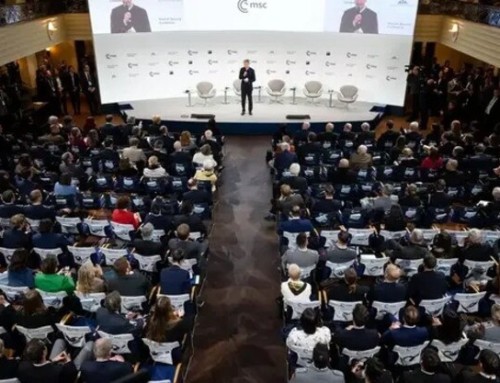 Two writers as different and diverse as Charles Dickens and Carl von Clausewitz set the context for American politics in the 21st century. More Americans would agree that the worst is getting the better of the best of times at home and internationally. The U.S. economy is sputtering and from Afghanistan to Ukraine chaos and violence have displaced peace and stability as the leading edge indicators.
Two writers as different and diverse as Charles Dickens and Carl von Clausewitz set the context for American politics in the 21st century. More Americans would agree that the worst is getting the better of the best of times at home and internationally. The U.S. economy is sputtering and from Afghanistan to Ukraine chaos and violence have displaced peace and stability as the leading edge indicators.
Against this rather bleak outlook, theoretically viable and even straight-forward solutions exist. To deal with the economy, reform of the tax code and regulatory and immigration systems and creation of a national infrastructure bank are self-evident actions that should be easily implemented. And likewise, internationally, despite the despair and difficulties of a complex and crisis filled world, solutions are present.
In Afghanistan, to ensure the best possible outcome, long-term coalition presence of about 10-15,000 service personnel and a commitment of about $10 billion annually are essential. In Syria, a brutally frank assessment leads to two polar choices. If saving lives is the critical criterion, then Bashar al Assad needs to prevail as quickly as possible no matter how repugnant that may be.
If ending Assad’s rule is the most important outcome, that a long-term commitment of several hundreds of thousands of military troops to defeat the Syrian Army and occupy the country are needed. Similarly in Ukraine, the most successful outcome is to allow the Ukrainians to deal with the opposition and the Russians on the basis that Vladimir Putin understands invading Ukraine is probably the worst choice Moscow can make. Russia could ingest and not digest Ukraine because of the economic expense—who will pay for the billions already owed to Gazprom for energy as well as the repercussions that will surely strengthen NATO and lead to crippling sanctions including cutting off all banking by ejecting Russia from SWIFT (the international banking transaction system) and forcing the huge corporations such as Exxon-Mobil and Siemens from doing business with the oligarchs.
But here Clausewitz applies. War, the great philosopher wrote consists of the simplest operations and actions. Yet, the fog and friction of battle can make achieving even the simplest activity difficult to impossible. None of the above has a scintilla of a chance of working. The reason is more than a broken political system. It is what that breakdown has caused in terms of America reactions to crisis.
America now is only capable of striking out in both meanings of the word. The first obviously comes from baseball embellished by the Mighty Casey at the Bat. Striking out is to fail.
Striking out has a second usage: lashing out in retaliation or as punishment. Benghazi is a good example. Republicans are using the deaths of Ambassador Christopher Stevens and three other Americans as a bludgeon to strike the administration charging cover up. A few Republicans assert this cover up to be Watergate-like in magnitude—an otherwise absurd argument made plausible by the poisonous and septic state of Washington’s politics and the animosities between the two parties.
The real questions—what was Ambassador Stevens doing in Benghazi and why had the State Department downgraded security at the Tripoli embassy prior to the events— should form the bases for investigation. And the ambition of the then-Ambassador to the UN Susan Rice for the Secretary of State’s job no doubt was a powerful reason for her overly aggressive representation of the White House’s position on the attack on the Sunday talk shows. Yet, Benghazi will be used by the Republicans to strike out at the president and Hillary Clinton who must be considered as the Democrat’s leading contender for the moment for the presidency.
Worse, the case for reforms at home to grow the economy is on hold surely through the November Congressional elections and more likely until after the November 2016 presidential sweepstakes. For all the talk about fixing immigration, the nation’s crumbling infrastructure and the tax code, actions count. And do not count on any serious actions happening soon.
The good news is none of these failures are existential to the nation. For the vast majority of Americans, standards of living and expectations will diminish. For much of the world, violence and tragedy will persist whether in Iraq, South Sudan, the Central African Republic or the Middle East. Yes, if nuclear negotiations with Iran fail, who knows what Israel might do. And, regardless of by accident or willful act, civil war or worse in Ukraine cannot be entirely dismissed.
America has far better choices than striking out in either dimension. The questions are when or if we will come to our collective senses.






Leave A Comment